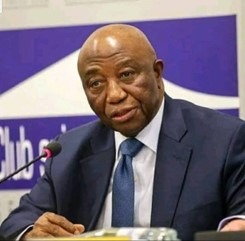President Joseph Boakai of Liberia has issued a clarion call for immediate and concerted action to combat detrimental and unregulated fishing practices plaguing the nation’s waters. He emphasized the critical role of fishing in Liberia’s economic landscape, stressing its contribution to food security, job creation, and overall economic advancement. Speaking at the 15th Ministerial Fisheries Committee for the West Central Gulf of Guinea (FCWC) Conference, President Boakai underscored the cultural and economic significance of fishing across the region and urged stakeholders to prioritize collaboration and cooperation to ensure sustainable fisheries management.
Central to President Boakai’s address was the urgent need to eradicate harmful fishing practices that pose a grave threat to the productivity and health of the ocean. He identified illegal, unreported, and unregulated (IUU) fishing, coupled with marine pollution, as major challenges undermining the sustainable development of the fishing industry. He warned that these practices, particularly overfishing, could lead to the collapse or decline of fish stocks, jeopardizing the economic livelihoods of communities that depend on fishing.
The Liberian president also highlighted the escalating dangers of climate change to the region’s marine ecosystems. Rising sea levels, ocean acidification, and increasingly unpredictable weather patterns were cited as significant threats requiring immediate attention. He called upon fishing stakeholders to collectively enhance their capacity through assistance and build resilience to mitigate the impacts of climate change on marine ecosystems. This, he argued, would not only improve the health of the oceans but also safeguard the livelihoods of those dependent on fishing.
President Boakai’s call to action coincided with Liberia assuming the leadership of the FCWC, with Emma Metieh Glasco, Director General of the National Fisheries and Aquaculture Authority (NaFAA), taking the helm. The President emphasized Liberia’s commitment to regional cooperation and sustainable fisheries management, particularly through the adoption of the Monrovia Declaration. This declaration is intended to serve as a guiding framework for stakeholders in their collective efforts to protect the future of the oceans, recognizing the vital role they play in the economic stability of coastal communities.
Mr. Adegboyega Oyetola, Minister for Marine of Blue Economy from the Federal Republic of Nigeria, commended the FCWC for its dedication to regional cooperation and sustainability, echoing the collective vision of driving economic growth through responsible fisheries management. He lauded the efforts of stakeholders in advancing fisheries across the Gulf of Guinea, recognizing the importance of collaborative initiatives in addressing the complex challenges confronting the sector. The conference highlighted the shared commitment among regional actors to promote sustainable fishing practices and ensure the long-term health and productivity of the region’s marine resources.
In conclusion, President Boakai’s address served as a powerful reminder of the critical need for concerted action to address the challenges facing the fishing industry in the West Central Gulf of Guinea. His emphasis on regional cooperation, sustainable management practices, and the urgent need to combat IUU fishing and marine pollution underscored the importance of a collective approach to protecting the region’s valuable marine resources. The assumption of FCWC leadership by Liberia, coupled with the adoption of the Monrovia Declaration, signals a renewed commitment to collaborative efforts in safeguarding the future of the region’s fisheries and the economic well-being of its coastal communities. The conference served as a platform for regional stakeholders to reaffirm their commitment to responsible fisheries management and to chart a course towards a sustainable and prosperous future for the fishing sector.














